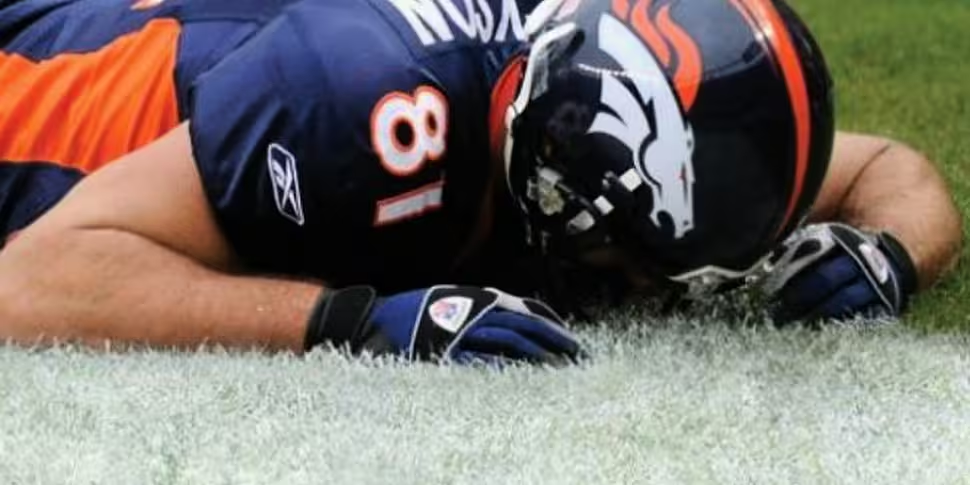Former Denver Broncos player Nate Jackson has recently released a critically-acclaimed memoir called Slow Getting Up: A Story of NFL Survival from the Bottom of the Pile.
Last night he spoke to Ger and Joe on Off The Ball about the vulnerabilities of being a professional sportsman and the less well known aspects of an NFL dressing room, including his use of HGH.
In an insightful chat, Jackson revealed the importance of the relationship between body and mind for a sportsperson.
"It's a very delicate balance between the two, especially in professional sports. It's not just about what you're doing on the field, it's about everything that's going on around it - the game around the game. And in the NFL there's so much involved in that game around the game. It's a very difficult balance to keep your mind positive and healthy."
The treatment of players by coaches does not help the situation.
"The coaches are dissecting your every movement with a laser pointer so it's a very stressful environment. You have to have very thick skin in that environment and not taking personally. These coaches are intending to tell you every tiny mistake you make so that you improve it.
"It's hard not to take it personally especially when the personality of the coach gets in the way of the message. A lot of times, football coaches in America can be pretty harsh. It can get inside your head. I've seen a lot of athletes crumble under that pressure and because of the way they are being talked to by these coaches and the names they are being called."

In addition, the average NFL player's emotions are rarely taken into account by coaches. However the Seattle Seahawks have been taking a different approach recently with impressive results.
"I think it's a step in the right direction. Not only are they doing yoga and holistic stuff but they are also asking them how they feel and their opinion on a game plan," said Nate.

"That engages the player and makes him feel like he's part of something. A lot of times on a lot of these NFL teams, as a player it feels like it's us vs them and all they're using us as are interchangeable pieces to the puzzle. They don't care about how we really feel. We don't get to express our opinions, we don't get to show our pain. The way that football works in America, they tell you the plan and you don't get to object or add your two cents."
The tail end of his career was a dark period for Nate. Unwilling to accept that the end was nigh due to injury problems and having been dropped by the Broncos, he admits he "poisoned his body" by taking human growth hormone (HGH) to give himself a last chance of playing in the NFL.
"I felt it was the smartest option for me at that point. The hamstring that had ended my previous season wasn't healed, I was cut by the Broncos and I knew that my body wasn't ready for the workouts with teams that summer. I was desperate and I wanted to be in top form. So I acquired [HGH] and bought my needles at the drug store, mixed it with a solvent and started shooting up. I thought it was going to be a wonder drug that was going to fix all my problems but it didn't. My body was a wreck. No amount of HGH was going to help that."
Nate kept his HGH use to himself but he did not feel like he was cheating. But would the ease with which he procured HGH suggest that everyone else is doing it?
"I never did it while I was playing in the NFL and I never saw it around me, in the locker room or never heard anyone talking about it. I didn't get HGH from anyone I played football with. I got it from another source."









